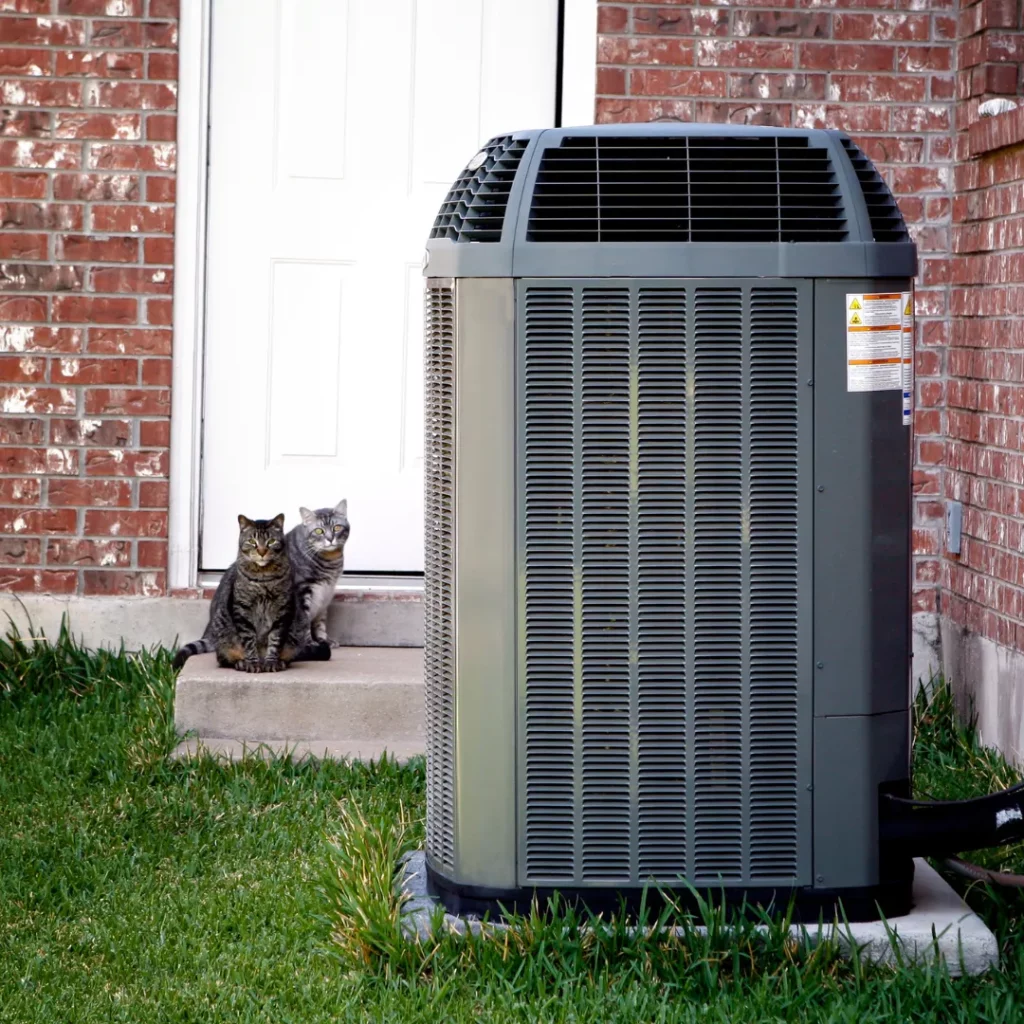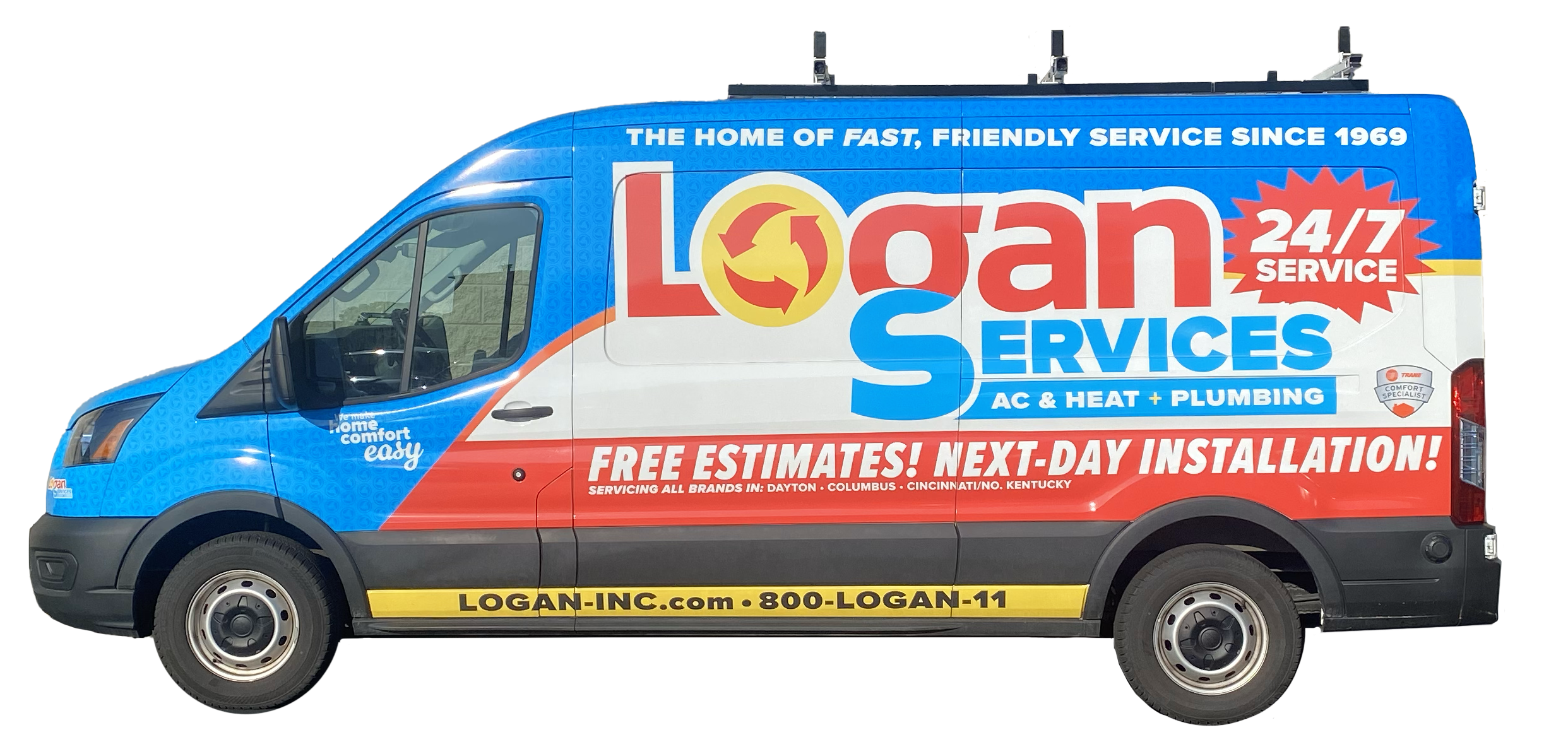Are you looking to upgrade your air conditioning unit while reducing energy consumption? Energy-efficient AC units are a great investment in your home, but with so many options to choose from, where do you start with this ac replacement project?
In this article, we’ll cover everything from understanding the importance of energy efficiency to considering factors such as SEER ratings and variable speed technology. We also delve into the economics of energy-efficient AC units, discussing long-term savings and effective ways to locate and select cost-effective options.
Finally, we look toward the future of AC units and the advancements in energy efficiency.
Understanding Energy Efficiency In AC Units
Regarding air conditioning units, energy usage cannot be overlooked. Energy efficient AC units help cut down the energy bill and contribute to overall environmental protection.
What is Energy Efficiency?
Energy efficiency refers to using less power to perform the same task, reducing unnecessary energy waste. For instance, an energy-efficient air conditioner uses less electricity to cool your home than a conventional window air conditioner.
Importance of Energy Efficiency in AC Units
An energy-efficient AC unit is important for a number of reasons, including:
- Lower energy bills. Energy-efficient AC units use less energy to cool your home, which can save you money on your energy bills. In fact, ENERGY STAR certified air conditioners use up to 15% less energy than standard models.
- Reduced environmental impact. AC units use a lot of energy, and the electricity they consume is often generated by fossil fuels. This can contribute to air pollution and climate change. Energy-efficient AC units can help to reduce your home’s carbon footprint.
- Fewer repairs. Energy-efficient AC units are often made with higher-quality materials and components, which can mean fewer repairs and replacements over time. This can save you money in the long run.
- Quieter operation. Energy-efficient AC units often run more quietly than standard models. This can be a major advantage if you live in a small space or if you are sensitive to noise.
Factors to Consider for Energy-Efficient AC Units
When it comes to energy efficiency, numerous factors come into play. Some of these include the Seasonal Energy Efficiency Ratio (SEER), variable fan speeds, and the window unit size.

SEER Rating: What is it and Why Does it Matter?
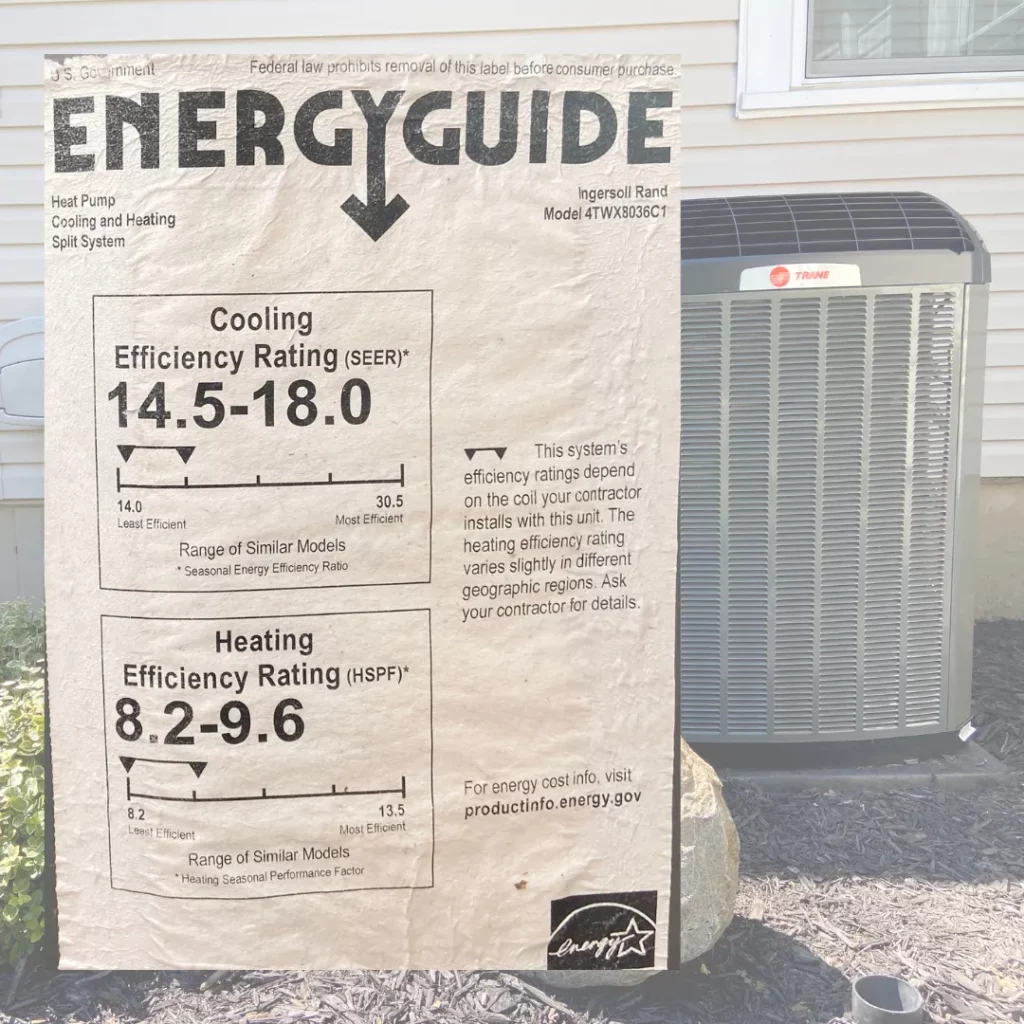
SEER stands for Seasonal Energy Efficiency Ratio. It is a measure of how efficient an air conditioner is at cooling a home over the course of an entire cooling season. The higher the SEER rating, the more efficient the air conditioner is.
A SEER rating of 10 means that for every 1 watt of electricity, the air conditioner uses, it can produce 10 BTU of cooling. A SEER rating of 15 means that for every 1 watt of electricity, the air conditioner uses, it can produce 15 BTU of cooling.
The higher the SEER rating, the more money you can save on your energy bills. For example, a home with a SEER rating of 10 that uses 1,000 kWh of electricity per year would cost about $100 more to operate than a home with a SEER rating of 15 that uses the same amount of electricity.
The minimum SEER rating for new air conditioners sold in the United States is 13. However, many air conditioners now have SEER ratings of 15 or higher. If you are buying a new air conditioner, choosing one with a high SEER rating is a good idea. This will save you money on your energy bills and help to reduce your environmental impact.
The Role of Variable Speed Technology
Variable speed technology is a feature that allows an AC unit to adjust its compressor speed to match the cooling demand of the home. This means that the unit can run at a lower speed when the demand is low, and at a higher speed when the demand is high. This can help to improve the efficiency of the AC unit and save energy.
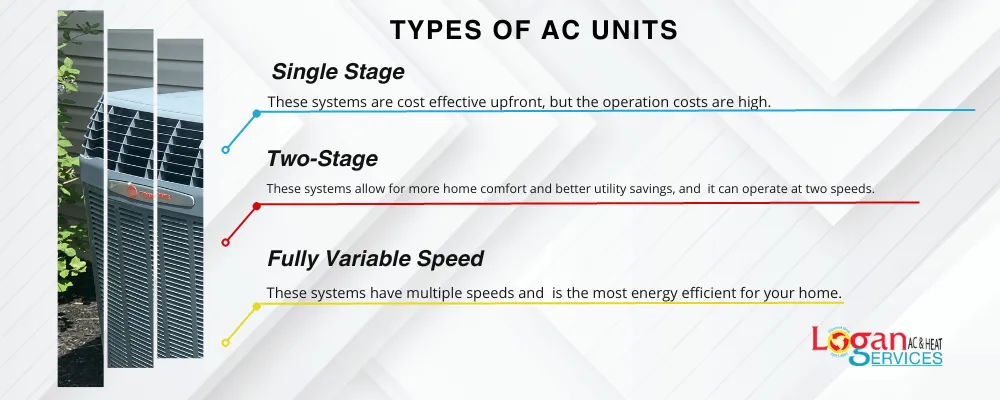
There are two main types of variable speed compressors:
- Intelligent compressors use a microprocessor to control the compressor speed. This allows the compressor to adjust its speed more precisely and efficiently.
- Pulse width modulation (PWM) compressors use a PWM signal to control the compressor speed. This allows the compressor to adjust its speed more quickly and smoothly.
Variable speed technology can offer a number of benefits over traditional single-speed AC units, including:
- Energy savings: Variable-speed AC units can save up to 30% on energy costs compared to single-speed units.
- Comfort: Variable-speed AC units can provide more consistent cooling, which can help to improve comfort levels.
- Quiet operation: Variable-speed AC units can run more quietly than single-speed units.
- Longer lifespan: Variable-speed AC units can have a longer lifespan than single-speed units.
If you are considering buying a new AC unit, variable speed technology is a great option to consider. It can save you money on energy costs, improve comfort levels, and provide a quieter and longer-lasting AC unit.
Here are some additional details about how variable speed technology works and how it can benefit you:
How variable speed technology works: A variable speed compressor has a number of different speeds at which it can run. The compressor speed is controlled by a sensor that monitors the temperature of the air inside the home. When the temperature inside the home is higher than the desired temperature, the compressor speed increases. When the temperature inside the home is lower than the desired temperature, the compressor speed decreases.
How variable speed technology can benefit you: Variable speed technology can benefit you in a number of ways, including:
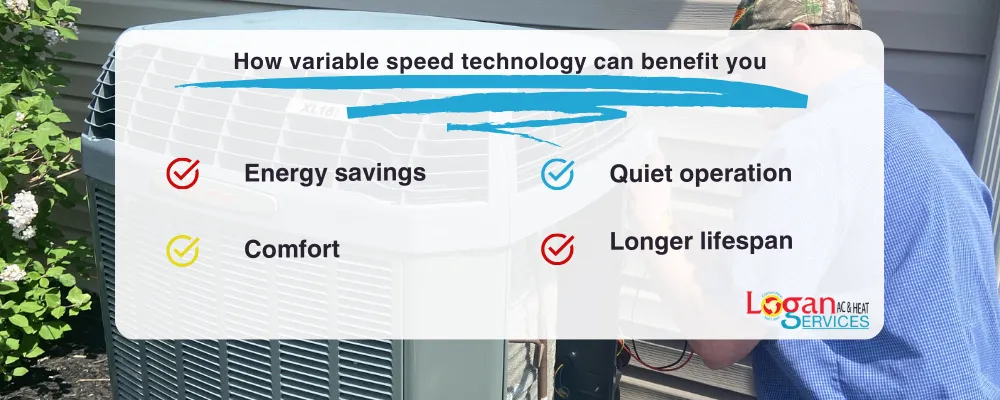
- Energy savings: As mentioned above, variable-speed AC units can save you money on energy costs. This is because they only use as much energy as they need to cool your home. Single-speed AC units, on the other hand, run at full speed all the time, even when they don’t need to.
- Comfort: Variable-speed AC units can provide more consistent cooling than single-speed units. This is because they can adjust their speed to match the changing temperature inside your home. Single-speed AC units, on the other hand, can only run at one speed. This means that they may not be able to keep your home cool enough when the temperature is high, or they may cool your home too much when the temperature is low.
- Quiet operation: Variable-speed AC units can run more quietly than single-speed units. This is because they don’t have to work as hard to cool your home. Single-speed AC units, on the other hand, have to work at full speed all the time, which can make them noisy.
- Longer lifespan: Variable-speed AC units can have a longer lifespan than single-speed units. This is because they don’t have to work as hard, which means that they are less likely to wear out. Single-speed AC units, on the other hand, have to work at full speed all the time, which can put a strain on their components and shorten their lifespan.
Importance of Size in Energy Efficiency
The size of an AC unit is important for two main reasons:
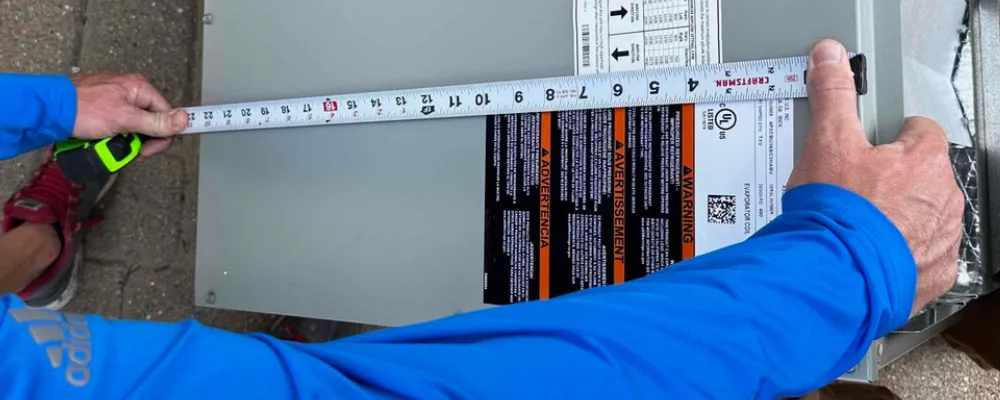
- To ensure proper cooling: If the unit is too small, it will not be able to cool your home effectively, which could lead to higher energy bills and uncomfortable temperatures. If the unit is too large, it will cool your home too quickly and then turn off, only to turn back on again shortly after. This short cycling can also lead to higher energy bills.
- To maximize energy efficiency: A properly sized AC unit will run more efficiently than an oversized unit. This is because an oversized unit will not have to work as hard to cool your home, which means that it will use less energy.
The size of the AC unit that you need will depend on a number of factors, including the size of your home, the climate in your area, and the insulation in your home. You can use a sizing chart or an AC sizing calculator to determine the size of unit that you need.
It is important to note that a larger AC unit will not necessarily cool your home faster than a smaller unit. In fact, an oversized unit may actually take longer to cool your home because it
will have to cycle on and off more often.
If you are not sure what size AC unit you need, it is always best to consult with a qualified HVAC contractor. They can help you determine the size of unit that you need and recommend an energy-efficient model.
The Economics of Energy-Efficient AC Units
Air conditioners are one of the most energy-intensive appliances in a home, accounting for about 15% of residential energy use in the United States. As a result, there is a growing interest in energy-efficient AC units.
Cost Vs. Long-term Savings
The upfront cost of an energy-efficient AC unit is typically higher than a standard unit. However, the long-term savings on energy bills can quickly offset the initial investment. In fact, the U.S. Department of Energy estimates that energy-efficient AC units can save homeowners up to 30% on their annual energy bills.
For example, a standard window AC unit costs $500 and uses 1000 kWh of energy per year, the annual energy bill would be $100 (assuming an average cost of $0.10 per kWh). An energy-efficient window AC unit that costs $1000 and uses 700 kWh of energy per year would have an annual energy bill of $70. This means that the energy-efficient unit would save the homeowner $30 per year on energy costs.
The savings from an energy-efficient AC unit can be even greater in areas with hot climates. For example, a study by the Lawrence Berkeley National Laboratory found that energy-efficient AC units in Phoenix, Arizona, can save homeowners up to $500 per year on energy costs.
The Future of AC Units: Towards Greater Energy Efficiency
The future of AC units is likely to see even greater energy efficiency. As technology advances, AC units will become more efficient and less expensive. For example, some new AC units are now using variable-speed compressors, which can adjust their speed to match the cooling demand of the room. This can lead to significant energy savings.
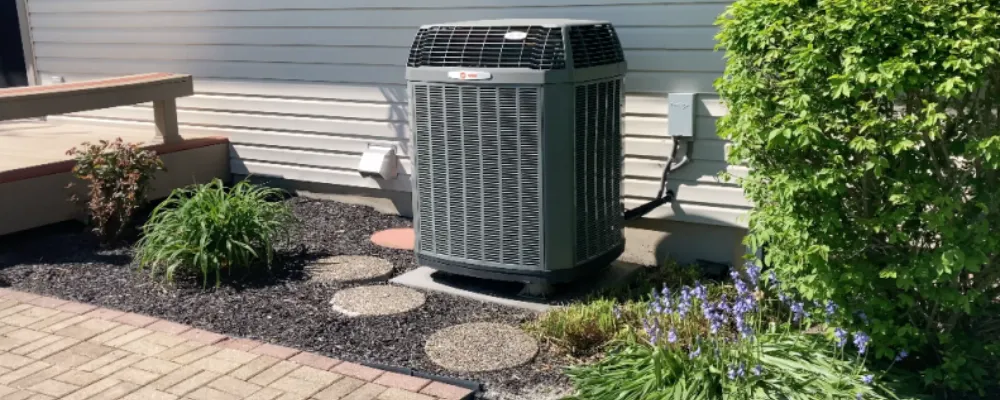
Another trend in energy-efficient AC units is the use of smart thermostats. Smart thermostats can learn the patterns of your home’s usage and adjust the AC unit accordingly. This can help to further reduce energy consumption.
As the demand for energy-efficient AC units increases, the market is likely to see even more innovative and efficient models in the years to come.
The economics of energy-efficient AC units are clear. The upfront cost of these units may be higher, but the long-term savings on energy bills can quickly offset the initial investment.
As technology advances, AC units are becoming more efficient and less expensive. The future of AC units is likely to see even greater energy efficiency, which will lead to lower energy bills and a healthier environment.
FAQs on Most Efficient AC Unit
What is the best energy-efficient air conditioner?
No “best” energy-efficient AC exists, depending on your specific needs and preferences. However, the Energy Star label products have been independently certified to save energy. Energy Star-certified portable, window, and central air conditioning are available in the market.
Here are some factors to consider when choosing an energy-efficient AC:
- The size of the room you need to cool. A larger air conditioner will cool a larger room more quickly and use more energy.
- The climate in your area. If you live in a hot climate, you will need a more powerful air conditioner than if you live in a cooler climate.
- Your budget. Energy-efficient air conditioners can cost more upfront, but they can save you money in the long run on your energy bills.
- Your preferences. Some people prefer window air conditioners because they are easy to install and remove. Others prefer portable air conditioners because they can be moved from room to room. Still, others prefer central air conditioners because they can cool an entire home.
Is it worth buying an energy-efficient air conditioner?
While energy-efficient air conditioners might come with a higher upfront cost, they can significantly reduce your energy bill over time. They are also more sustainable, contributing less to carbon emissions than less efficient models.
According to the U.S. Department of Energy, energy-efficient AC can save homeowners up to 30% on their annual energy bills. This means that if you spend $100 per month on your energy bill, you could save $30 per month, or $360 per year, by switching to an energy-efficient option.
The upfront cost of an energy-efficient AC can range from $500 to $2,000, depending on the size and features of the unit. However, the long-term savings on your energy bill can quickly offset the initial investment.
In addition to saving money, energy-efficient air conditioners are also better for the environment. They emit less carbon dioxide into the atmosphere, which helps to reduce climate change.
If you are considering buying a new air conditioner, I recommend choosing an energy-efficient model. It is a wise investment that can save you money and help the environment.
How much can I save with an energy-efficient air conditioner?
On average, energy-efficient air conditioners can save you up to 20-50% on energy costs, though this greatly depends on the seasonal energy efficiency ratio (SEER) of the unit and the energy costs in your area. For example, if you live in a hot climate and your current air conditioner has an EER of 10, you could save up to $200 per year on your energy bill by upgrading to an energy-efficient unit with a SEER of 13.
The SEER is a measure of how efficient an air conditioner is at cooling a home. The higher the EER, the more efficient the unit. Energy Star-certified air conditioners have an SEER of at least 13, which is 15% more efficient than the federal minimum standard.
In addition to the SEER, the size of your air conditioner and the climate you live in can also affect your energy savings. A larger air conditioner will cool a larger space more quickly, but it will also use more energy. If you live in a hot climate, you will need a more powerful air conditioner than if you live in a cooler climate.
If you are considering buying a new air conditioner, it is important to factor in the cost of energy efficiency. Energy-efficient units may cost more upfront, but they can save you money in the long run and help the environment.

